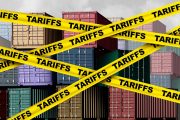
The Congressional Budget Office estimates that the bill would raise an additional “$845.6 billion over the 2010–2019 period” in higher taxes, which represents an average of more than $4,000 per household in America. However, neither proponents nor opponents of the bill claim to know the precise new cost of the legislation’s extensive regulatory burden. The regulatory costs are likely to dwarf the cost of new taxes.
Proponents of the bill claim that the groundbreaking new federal energy mandates about carbon emissions would create new jobs. “This is a jobs bill,” Edward J. Markey (D-Mass.) told Congressional Quarterly. “It will create millions of new clean energy jobs in whole new industries with incentives to drive competition in the energy marketplace.” President Barack Obama said in a statement on House passage that “it will make possible the creation of millions of new jobs. Now, make no mistake — this is a jobs bill.”
However, those claims by Obama, Markey, and others are based upon the dubious notion that huge consumer and corporate energy bills will create niche markets for energy-efficiency companies in the long run. In the short run, higher energy costs would drive up costs of goods produced by American companies across the market, and could sweep American-made products (along with American jobs) from the market when they face foreign competitors producing with lower energy costs.
"Today’s razor-thin vote in the House spells doom in the Senate," Sen. James Inhofe (R-Okla.) told the Associated Press. Americans who want to avoid both higher taxes and what President Barack Obama admits will be “skyrocketing” utility bills should more than hope so.
Related articles:
A Cooling Trend Toward Global Warming




